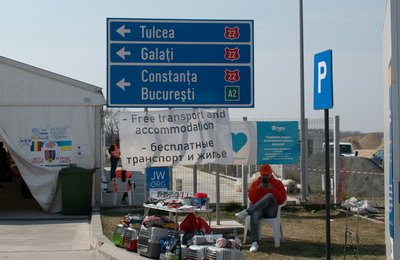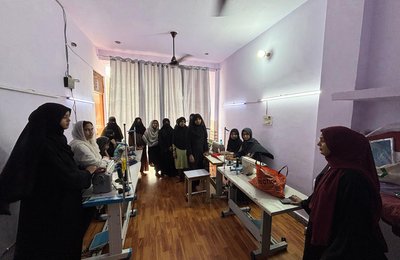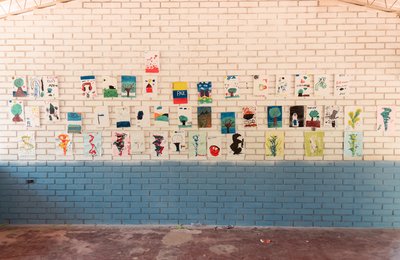Instinctive and intuitive paths to peace: Rose Pihei’s authentic approaches towards Bougainville’s healing
This article explores the instinctive and intuitive approaches, sobered by measured wisdom, that Rose Pihei undertook in her peacebuilding and reconciliation initiatives in Bougainville. This combined with the powerful use of local customs and tradition demonstrated her authentic approaches to peace which is starkly distinct from the typical project-based, structured and funder-driven models for peacebuilding and reconciliation.

Bougainville, a provincial island of Papua New Guinea (PNG), was the site of the Bougainville Crisis and an ensuing deadly civil war 1988–1998. The war – said to have been the largest conflict in Oceania since World War 2 – was fought between the PNG government (PNG Defence Force or PNGDF) and the secessionist Bougainville Revolutionary Army (BRA).
In 2001, the Bougainville Peace Agreement was signed by Bougainville leaders and the PNG government. This agreement led to the establishment of the Autonomous Bougainville Government (ABG). The Peace Agreement included the requirement for an independence referendum to be held by 2020. It is in this context that grassroots peacebuilding efforts, like those made by Rose Pihei, were instrumental in fostering peace and reconciliation.
Who is Rose Pihei?
Rose Pihei is a peacebuilder from Bougainville. She has focused on reconciliation and empowering women for the past two decades. She was instrumental in the establishment of the Bougainville Women’s Federation, which was launched in 2012 after six years of consultations and preparation. She eventually became the Minister for Community Development from 2010–2015, where she initiated the policy on Women, Peace and Security.
Her peacebuilding and reconciliation drew on instinctive and intuitive approaches, combined with the powerful use of local customs and tradition.

“Bel-Kol” and the pathway to reconciliation
From 2006 to 2011, Rose focused on reconciliation efforts in the Konnou constituency, engaging with Freedom Fighters and Me’ekemui factions. Her journey as a peacebuilder started when her family was displaced after a conflict, triggered by the theft of a chainsaw, led to her brother being involved in a shootout and killing his opponent. This incident had far-reaching consequences as the two families were supported by their respective associates and supporters which led to the formation of two clans that were at odds against each other leading to multiple incidents of violence and clashes.
This incident forced her family to relocate, and prompted her to initiate ceasefire negotiations with the others involved in the incident.
“My family was a victim of the Konnou Post Conflict which erupted on 2nd October, 2006. We were internally displaced families and I partnered with Nazareth Centre for Rehabilitation where I brought the families for safety. This was the beginning of the work that I began as an individual peacebuilder, before becoming recognised as a national peacebuilder.”
Embracing tradition, Rose performed a ‘bel-kol’, a customary peace ritual involving monetary compensation to the opposition. She started by speaking to her brother and then the families of the deceased, convincing them that the incident was not personal but instigated by the government. This reconciliation process involved community fundraising and providing food and funds to the affected families. The success of this process was recognised by the UN, Bougainville administration, and the police. This customary tradition was a breakthrough for the conflict as it achieved its objective of ‘cooling the hearts’ of the two families and thereby opened up space for the reconciliation activities that are described in the following sections.
Patience and psychology in peacebuilding
Rose recalls that during the post-war period of reconciliation, everyone, including thieves, ex-combatants, and youths, yearned for peace. Chiefs from the "no-go zone" in Panguna led a month of negotiations, resulting in a successful reconciliation in November 2011. Supported by five women peacebuilders, Rose navigated between chiefs, leading to reconciliation through traditional rituals. The involvement of women was significant, as their patience and empathy were crucial in understanding the needs and mindsets of the chiefs.
The reconciliation process had a profound impact on the Bougainville community. It restored services such as healthcare and education, allowing children to attend school without fear. Freedom of movement enabled people to visit families, go to markets, and resume normal lives. Women could move freely and participate in peacebuilding trainings, enhancing their capacity and agency.
Capacity bridging to shift voter mindsets
Rose facilitated peacebuilding trainings for veterans, chiefs, women, and other community stakeholders, covering topics like drug and alcohol awareness and nation-building. She supported the UN Women Project – Peace for Women and Children in Bougainville, training peacebuilders and government officials across Bougainville. These trainings empowered over 200 women, leading to their recognition as impactful leaders in their communities.
Rose emphasised the importance of these trainings, noting that they were never taken for granted in Bougainville. Training provided empowerment and agency for women, helping them ascend to positions of power and perform their tasks effectively.
“In the early part of the Konnou Post Conflict armed conflict, we local women did not have any capacity for peacebuilding and what peacebuilding meant. However, I knew of Nazareth Centre for Rehabilitation doing some peacebuilding training in other parts of Bougainville. So, I invited Nazareth Centre for Rehabilitation to support us local women with local peacebuilding initiatives, including leadership training, trauma counselling, drug and alcohol awareness, and nation-building. I did all of these as a local volunteer liaison person, who negotiated between warring factions to allow space for these trainings to take place. I continue to work as a volunteer in the peacebuilding space.”
Reconciling militant groups and preparing for independence
Rose is currently working on an initiative to reconcile, demilitarise, and demobilise militant groups and ex-combatants as part of an ‘independence-ready’ programme supported by the ABG. This initiative aims to create resilient communities prepared for potential uprisings during or post-independence. It involves meeting with military commanders to prevent violence and protect women and children, while also supporting militants in reintegrating into communities and boosting economic activities.
Rose’s strategy focuses on building resilient communities by preparing them for independence. She believes that preventive work is critical in peacebuilding as it saves lives and prevents harm.
Start here, start now
When asked to share key lessons from her grassroots peacebuilding journey to inspire other women peacebuilders, Rose says, “Get more women into decision-making roles.” Rose believes that if they focus on local community peacebuilding and local government capacity development, more women can participate in decision-making roles.
“Women in leadership roles are more inclusive in terms of their services and advocacy. Women are aware of everyone’s needs and hold a level of trust in communities and citizens.”
Furthermore, Rose believes that if a woman has the capacity to work and assist in community development, she should not hesitate. “Don’t wait for the government to step in or for someone to provide funds.” Having experienced firsthand the disintegration of peacebuilding projects when funding ends, she advocates for local-level initiatives because they are not as expensive.
Moreover, Rose strongly urges women to take ownership of peacebuilding, even if they have little knowledge or skills. She desires this because she realised that the ABG didn’t have the vision to build the appropriate systems in place to support its people, such as departments of education, health, and commerce. She says there’s an “enormous need to do more capacity building for women peacebuilders.”
Before concluding the inspiring conversation with Rose, I asked her the final question: In your experience and opinion, how is working with local grassroots communities a strength for leaders?
She answered decisively: “The strength that you find working with grassroot levels is that it’s real. It gives you a competitive advantage as a leader because you have engaged with people, on the ground. This would mean that you have felt their pain, heard their voices, seen their suffering, that you normally wouldn’t hear at the national level.”
She believes this makes them the right people to advocate for law reforms and economic empowerment because they have interacted with the people and understand their needs. “The data backs their claims for reform. This data is real-time data that increases the legitimacy of the reform efforts and policy decisions.”








